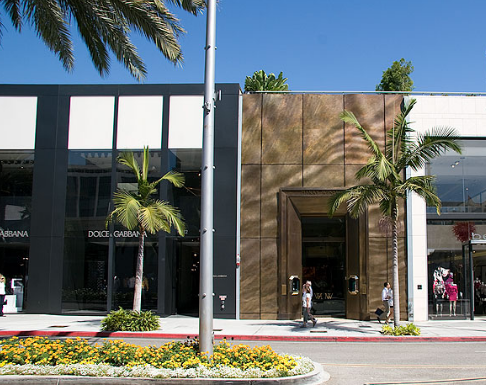
I interviewed Jay Luchs, a Los Angeles–based retail real estate broker, for an upcoming feature in the May 2017 issue of JCK. And the veteran real estate professional—who’s placed major brands including Tom Ford and Céline on world-famous shopping streets including Beverly Hills’ Rodeo Drive—had a lot to say about how luxury brands are behaving when it comes to brick-and-mortar.
Here are some outtakes from our interview that I found particularly interesting—I hope you do, too!
JCK: How has the brick-and-mortar retail game changed for luxury brands since the dawn of e-commerce and social media?
Jay Luchs: I think global luxury brands are still the way they have been. They need a presence, so they need a store. I see more of a change with contemporary fashion and smaller, targeted brands. Online has just completely changed brick-and-mortar, I think forever. It’s much tougher. I don’t think that means brick-and-mortar gets killed. But two years ago, we started talking about [there being less demand for retail space], and now it’s more real.
I think we’re in that adjustment period. Great brands still need a presence on great retail streets. But now it’s probably more important, with social media, who’s wearing your brand.
JCK: How has that changed your job?
Luchs: I’m still busy trying to find spaces. But it’s different—it’s not like one space is for lease and 10 people are fighting for it. And with the big spaces, only so many people can fill a massive space.
JCK: What do you see the younger, online-first retailers doing with brick-and-mortar?
Luchs: I’m working with a cool brand in New York City that is opening its first store, and they went to Williamsburg in Brooklyn, not upper Madison [Avenue]. By doing that, they’re telling their customers who they are.
You’ll see more and more brands that want to get into the experimental side of retail, too. How do you combine fashion with a bakery or food? Those are the questions they’re asking. It’s a lot about creating really special, curated experiences.
JCK: Are younger brands more cautious about taking on the overhead of physical retail?
Luchs: For sure. When you talk to the cooler brands—they’re not out blowing money on stores and risking their careers on it. Like Warby Parker and Bonobos…people are being extra careful.
JCK: We hear a lot about the impending death of the mall. What are your thoughts on mall retailing?
Luchs: Malls are important! For me, they’re usually my competition. If you want traffic and to make a lot of money, go open at a mall [note: high-end L.A. malls such as The Grove and Beverly Center are very well-trafficked].
It’s the midlevel malls that are less relevant. It’s really the end of an era with them. Cool malls will survive. The malls that are spending lots of money to keep the best tenants—those are the ones I think are winning. In the short term, they’re feeling pain, but they’re getting tenants to sign 10- to 15-year leases, which is good for them. I’m a fan of malls. That’s where you get your community.
(Photo of Harry Winston store on Rodeo Drive courtesy of Jay Luchs)
Follow JCK on Instagram: @jckmagazineFollow JCK on Twitter: @jckmagazine
Follow JCK on Facebook: @jckmagazine